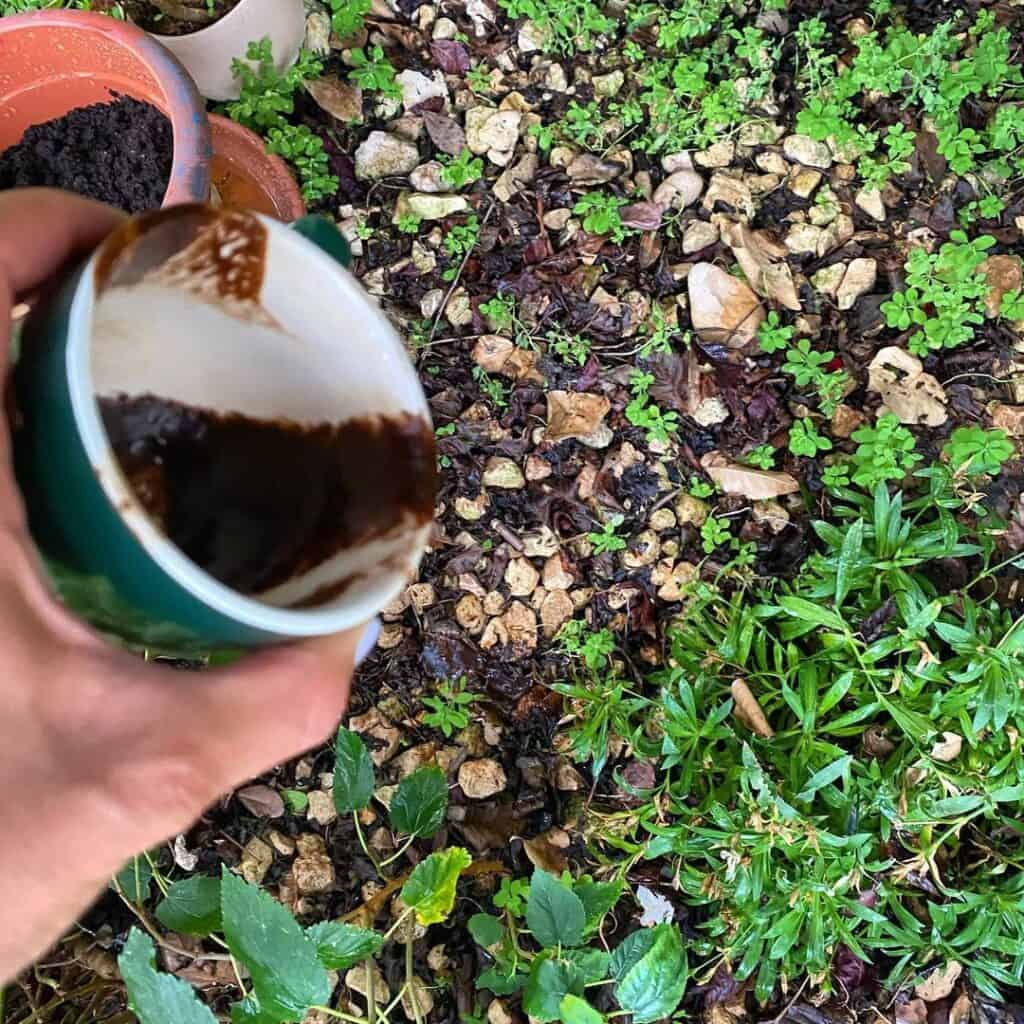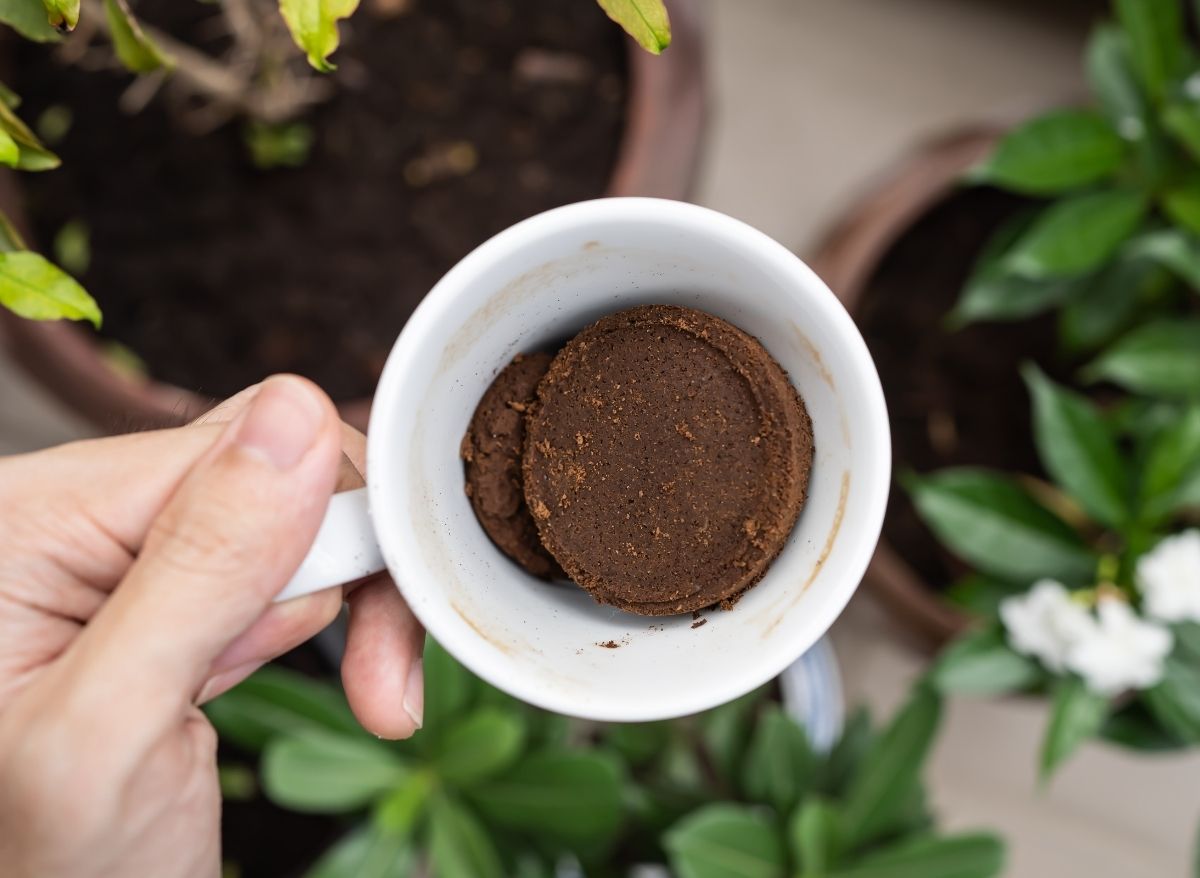Unlocking the Potential of Coffee Grounds for Rose Bush Care
Coffee grounds, a common household waste, have been gaining attention as a natural fertilizer for rose bushes. The question on many gardeners’ minds is, are coffee grounds good for rose bushes? The answer is a resounding yes. Using coffee grounds as a fertilizer can provide numerous benefits for rose bushes, including reducing waste and promoting sustainable gardening practices.
Rose bushes require a balanced diet of nutrients to thrive, and coffee grounds can provide some of these essential nutrients. Coffee grounds are rich in nitrogen, phosphorus, and potassium, making them an excellent addition to rose bush fertilization. By incorporating coffee grounds into their fertilization routine, gardeners can reduce their reliance on synthetic fertilizers and create a more sustainable gardening practice.
Furthermore, using coffee grounds as a fertilizer can help reduce waste and minimize the environmental impact of gardening. Coffee grounds are a readily available resource that would otherwise end up in landfills. By repurposing them as a fertilizer, gardeners can reduce their carbon footprint and create a more eco-friendly gardening practice.
In addition to their environmental benefits, coffee grounds can also provide a cost-effective solution for rose bush fertilization. Unlike synthetic fertilizers, coffee grounds are free and readily available, making them an attractive option for gardeners on a budget.
Overall, using coffee grounds as a fertilizer can provide numerous benefits for rose bushes, including reducing waste, promoting sustainable gardening practices, and providing essential nutrients. By incorporating coffee grounds into their fertilization routine, gardeners can create a more eco-friendly and cost-effective gardening practice that promotes healthy and thriving rose bushes.
How to Use Coffee Grounds to Boost Rose Bush Health
To harness the benefits of coffee grounds for rose bushes, it’s essential to use them correctly. Here’s a step-by-step guide on how to incorporate coffee grounds into your rose bush care routine:
**Step 1: Mix Coffee Grounds with Soil**
Start by mixing 1/2 cup of coffee grounds with 1 gallon of soil. This ratio allows for a balanced release of nutrients without overwhelming the rose bushes. You can adjust the ratio based on the specific needs of your rose bushes and soil type.
**Step 2: Choose the Right Application Method**
There are two primary methods for applying coffee grounds to rose bushes: top-dressing and mixing into the soil. Top-dressing involves sprinkling coffee grounds around the base of the rose bushes, while mixing into the soil involves incorporating coffee grounds into the soil before planting or repotting. Both methods are effective, but mixing into the soil provides a more gradual release of nutrients.
**Step 3: Determine the Frequency of Use**
The frequency of using coffee grounds on rose bushes depends on the soil type and rose bush variety. As a general rule, apply coffee grounds once a month during the growing season (spring-fall) and once every 2-3 months during the dormant season (winter). This schedule allows for a consistent release of nutrients without over-fertilizing.
**Step 4: Monitor and Adjust**
Keep an eye on your rose bushes’ response to coffee grounds and adjust the application frequency or ratio as needed. If you notice any adverse effects, such as over-fertilization or nutrient deficiencies, adjust your approach accordingly.
By following these steps, you can effectively use coffee grounds to boost the health and vitality of your rose bushes. Remember to always monitor and adjust your approach to ensure the best results for your plants.
The Science Behind Coffee Grounds and Rose Bush Nutrition
Coffee grounds are a rich source of essential nutrients that can benefit rose bushes. But what exactly makes coffee grounds so beneficial for rose bushes? To answer this question, let’s delve into the science behind coffee grounds and rose bush nutrition.
Coffee grounds are primarily composed of nitrogen, phosphorus, and potassium, which are three of the most essential nutrients for plant growth. Nitrogen is responsible for promoting leaf growth and development, while phosphorus plays a critical role in root development and flower production. Potassium, on the other hand, helps to regulate water balance and promotes overall plant health.
Rose bushes, in particular, require a balanced diet of these nutrients to thrive. Coffee grounds can provide a slow release of these nutrients, which can help to promote healthy growth and development. Additionally, coffee grounds contain other micronutrients such as magnesium, sulfur, and calcium, which can also benefit rose bushes.
But how do coffee grounds actually benefit rose bushes? Research has shown that coffee grounds can help to improve soil structure, increase soil fertility, and support beneficial microbial activity. This can lead to healthier roots, more vigorous growth, and increased flower production.
Furthermore, coffee grounds can also help to reduce soil pH levels, which can be beneficial for rose bushes that prefer slightly acidic to neutral soil conditions. By incorporating coffee grounds into the soil, gardeners can create a more favorable growing environment for their rose bushes.
Overall, the science behind coffee grounds and rose bush nutrition is clear: coffee grounds are a valuable resource that can provide essential nutrients and promote healthy growth and development. By understanding the science behind coffee grounds, gardeners can harness their potential and create a more sustainable and effective fertilization strategy for their rose bushes.
Other Natural Fertilizers to Complement Coffee Grounds
While coffee grounds are a valuable resource for rose bush fertilization, they can be even more effective when used in conjunction with other natural fertilizers. By combining coffee grounds with other nutrient-rich materials, gardeners can create a comprehensive fertilization plan that promotes healthy growth and development.
One of the most effective natural fertilizers to complement coffee grounds is compost. Compost is a rich source of nutrients, including nitrogen, phosphorus, and potassium, which can help to support healthy rose bush growth. By mixing compost with coffee grounds, gardeners can create a nutrient-dense fertilizer that promotes robust growth and development.
Manure is another natural fertilizer that can be used to complement coffee grounds. Manure is high in nitrogen, phosphorus, and potassium, making it an excellent addition to a rose bush fertilization plan. When used in moderation, manure can help to promote healthy growth and development, while also improving soil structure and fertility.
Green sand is a natural fertilizer that is rich in potassium and other micronutrients. It can be used to complement coffee grounds and provide a boost of nutrients to rose bushes. Green sand is also a natural soil conditioner, which can help to improve soil structure and fertility.
Other natural fertilizers that can be used to complement coffee grounds include fish emulsion, bone meal, and alfalfa meal. These fertilizers are all rich in nutrients and can help to promote healthy growth and development in rose bushes.
When using multiple natural fertilizers, it’s essential to follow a few guidelines to ensure effective fertilization. First, make sure to use each fertilizer in moderation, as over-fertilization can be detrimental to rose bush health. Second, mix the fertilizers according to the recommended ratios to avoid over-fertilizing. Finally, monitor rose bush health and adjust the fertilization plan as needed.
By combining coffee grounds with other natural fertilizers, gardeners can create a comprehensive fertilization plan that promotes healthy growth and development in rose bushes. Remember to always use natural fertilizers in moderation and follow the recommended guidelines to ensure effective fertilization.
Common Mistakes to Avoid When Using Coffee Grounds on Rose Bushes
While coffee grounds can be a valuable resource for rose bush fertilization, there are several common mistakes to avoid when using them. By being aware of these mistakes, gardeners can ensure that they are using coffee grounds effectively and safely.
**Over-Application**
One of the most common mistakes to avoid when using coffee grounds on rose bushes is over-application. Too much coffee grounds can lead to an overabundance of nutrients, which can cause more harm than good. This can result in burned roots, yellowing leaves, and stunted growth.
**Inadequate Mixing**
Another mistake to avoid is inadequate mixing of coffee grounds with soil. Coffee grounds should be mixed thoroughly with soil to ensure that they are evenly distributed and can provide nutrients to the rose bushes. Inadequate mixing can lead to uneven nutrient distribution and reduced effectiveness.
**Neglecting Soil pH Levels**
Coffee grounds can affect soil pH levels, and neglecting to monitor these levels can lead to problems. Rose bushes prefer slightly acidic to neutral soil pH levels, and coffee grounds can help to achieve this. However, if soil pH levels become too acidic or too alkaline, it can harm the rose bushes.
**Not Monitoring Rose Bush Health**
Finally, not monitoring rose bush health is a common mistake to avoid when using coffee grounds. Regular monitoring of rose bush health can help to identify any problems or issues early on, and adjustments can be made to the fertilization strategy as needed.
By avoiding these common mistakes, gardeners can ensure that they are using coffee grounds effectively and safely to fertilize their rose bushes. Remember to always use coffee grounds in moderation, mix them thoroughly with soil, monitor soil pH levels, and regularly monitor rose bush health.
Real-Life Examples of Successful Coffee Ground Fertilization
While the benefits of using coffee grounds as a natural fertilizer for rose bushes are well-documented, it’s always helpful to see real-life examples of successful coffee ground fertilization. Here are a few case studies of gardeners who have used coffee grounds to fertilize their rose bushes with great success:
**Case Study 1: Increased Bloom Production**
A gardener in California used coffee grounds to fertilize her rose bushes and reported a significant increase in bloom production. She applied 1/2 cup of coffee grounds to the soil around her rose bushes once a month and noticed a 30% increase in blooms within 6 weeks.
**Case Study 2: Improved Soil Health**
A gardener in New York used coffee grounds to improve the soil health of his rose bushes. He mixed 1 cup of coffee grounds into the soil around his rose bushes and noticed a significant improvement in soil structure and fertility. His rose bushes began to grow more vigorously and produced more blooms.
**Case Study 3: Reduced Pest Problems**
A gardener in Florida used coffee grounds to reduce pest problems in her rose bushes. She applied 1/4 cup of coffee grounds to the soil around her rose bushes once a week and noticed a significant reduction in aphids and whiteflies. Her rose bushes began to grow more healthily and produced more blooms.
These case studies demonstrate the effectiveness of using coffee grounds as a natural fertilizer for rose bushes. By incorporating coffee grounds into their fertilization routine, gardeners can promote healthy growth, increase bloom production, and reduce pest problems.
It’s worth noting that the key to successful coffee ground fertilization is to use them in moderation and in combination with other natural fertilizers. By following the guidelines outlined in this article, gardeners can create a comprehensive fertilization plan that promotes healthy growth and development in their rose bushes.
Combining Coffee Grounds with Other Rose Bush Care Practices
Coffee ground fertilization is just one aspect of a comprehensive rose bush care plan. To create a holistic approach to rose bush care, it’s essential to integrate coffee ground fertilization with other essential practices, such as pruning, watering, and pest management.
**Pruning**
Pruning is a critical aspect of rose bush care, as it helps to promote healthy growth, increase bloom production, and maintain the overall shape of the plant. When pruning, make sure to remove any dead or diseased branches, as these can harbor pests and diseases that can harm the plant.
**Watering**
Watering is another essential aspect of rose bush care. Rose bushes need consistent moisture, especially during the growing season. However, overwatering can be detrimental to the plant, so make sure to water only when the soil feels dry to the touch.
**Pest Management**
Pest management is a critical aspect of rose bush care, as pests can quickly damage the plant and reduce bloom production. Common pests that affect rose bushes include aphids, whiteflies, and spider mites. Use natural pest control methods, such as neem oil and insecticidal soap, to control pest populations.
**Integrating Coffee Ground Fertilization**
To integrate coffee ground fertilization with other rose bush care practices, start by applying coffee grounds to the soil around your rose bushes once a month. Then, prune your rose bushes regularly to promote healthy growth and increase bloom production. Water your rose bushes consistently, but avoid overwatering. Finally, use natural pest control methods to control pest populations.
By combining coffee ground fertilization with other essential rose bush care practices, you can create a holistic approach to rose bush care that promotes healthy growth, increases bloom production, and reduces pest problems.
Monitoring and Adjusting Your Coffee Ground Fertilization Strategy
Monitoring and adjusting your coffee ground fertilization strategy is crucial to ensure the health and well-being of your rose bushes. By regularly assessing soil health, rose bush growth, and nutrient levels, you can identify any potential issues and make adjustments to your fertilization strategy as needed.
**Assessing Soil Health**
Soil health is a critical factor in determining the effectiveness of your coffee ground fertilization strategy. To assess soil health, check the soil’s pH level, nutrient content, and structure. You can use a soil testing kit to determine the soil’s pH level and nutrient content.
**Monitoring Rose Bush Growth**
Regularly monitoring rose bush growth is essential to determine the effectiveness of your coffee ground fertilization strategy. Check for signs of healthy growth, such as new leaves, stems, and blooms. Also, monitor for any signs of stress or disease, such as yellowing leaves or black spots.
**Adjusting Your Fertilization Strategy**
Based on your assessment of soil health and rose bush growth, you may need to adjust your coffee ground fertilization strategy. If you find that your soil is lacking in nutrients, you may need to increase the frequency or amount of coffee grounds you apply. If you find that your rose bushes are experiencing stress or disease, you may need to reduce the frequency or amount of coffee grounds you apply.
**Tips for Adjusting Your Fertilization Strategy**
Here are some tips for adjusting your coffee ground fertilization strategy:
– Start with a small amount of coffee grounds and gradually increase the amount as needed.
– Monitor soil pH levels and adjust the amount of coffee grounds accordingly.
– Avoid over-fertilizing, as this can cause more harm than good.
– Consider using other natural fertilizers, such as compost or manure, in conjunction with coffee grounds.
By regularly monitoring and adjusting your coffee ground fertilization strategy, you can ensure the health and well-being of your rose bushes and achieve optimal results.







